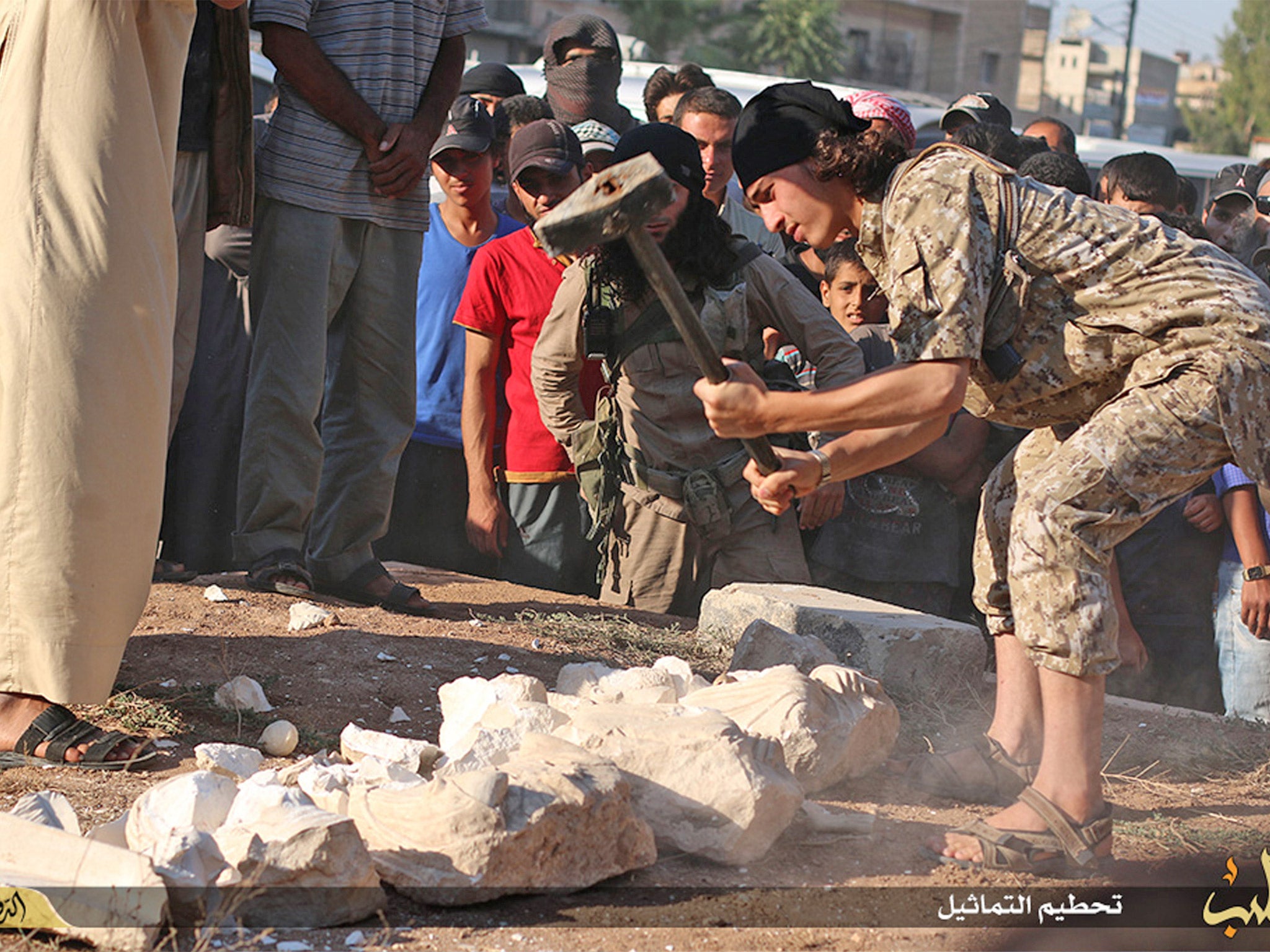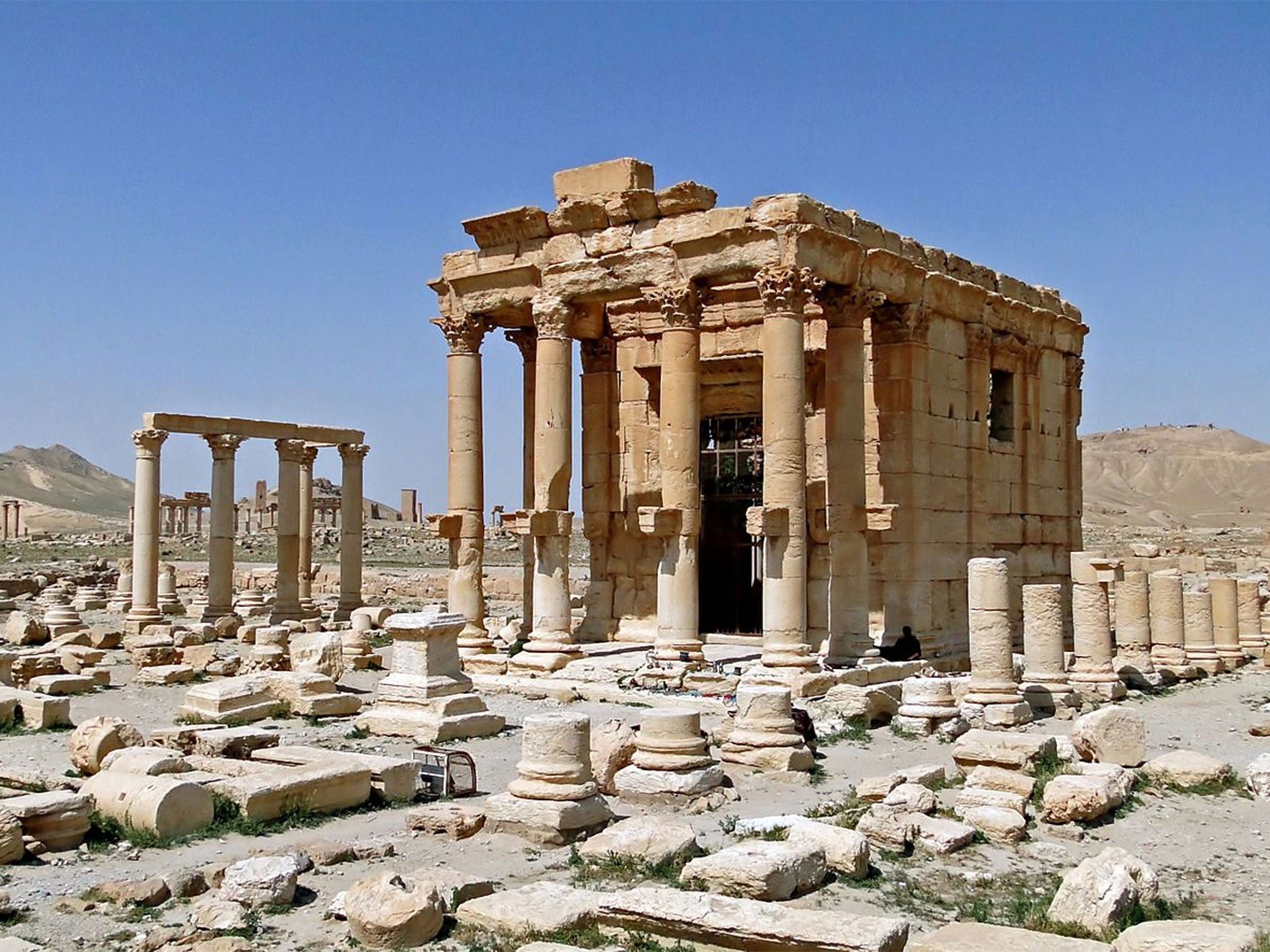Isis in Palmyra: British Museum 'deeply distressed' by destruction of Baalshamin Temple
Isis is reported to have destroyed the Baalshamin Temple in Palmyra, which stood almost completely intact for nearly 2,000 years

Your support helps us to tell the story
From reproductive rights to climate change to Big Tech, The Independent is on the ground when the story is developing. Whether it's investigating the financials of Elon Musk's pro-Trump PAC or producing our latest documentary, 'The A Word', which shines a light on the American women fighting for reproductive rights, we know how important it is to parse out the facts from the messaging.
At such a critical moment in US history, we need reporters on the ground. Your donation allows us to keep sending journalists to speak to both sides of the story.
The Independent is trusted by Americans across the entire political spectrum. And unlike many other quality news outlets, we choose not to lock Americans out of our reporting and analysis with paywalls. We believe quality journalism should be available to everyone, paid for by those who can afford it.
Your support makes all the difference.The British Museum has said it is "deeply disturbed" by reports the Isis militant group has started demolishing major structures in the ancient city of Palmyra.
Activists in Syria said the Baalshamin Temple, one of the best-preserved at the Unesco World Heritage site, was destroyed with explosives on Sunday.
The reported destruction of the 2,000-year-old Greco-Roman ruin came after Isis said it had demolished the Mar Elian Monastery in the Syrian town of al-Qaryatayn, which it only recently captured.
And last week it beheaded the 82-year-old antiquities chief of Palmyra, Khalid Asaad, after interrogating him for around a month.

A spokesperson for the British Museum told The Independent it "continues to monitor the situation from afar" with concern.
"We are deeply distressed by the news of further destruction of important ancient monuments in Syria," the spokesperson said.
"These follow the terribly sad news last week of the loss of our colleague Khaled Assad, Director of Palmyra.
"The British Museum is very concerned with what is happening in the region with regard to its cultural heritage, whether it is the continuing threat to the welfare of colleagues, destruction of archaeological sites, museums and religious monuments or the looting and trafficking of antiquities."
Unesco has also responded to the news from Palmyra with alarm. It's Director-General, Irina Bokova, said that Isis's destruction of the Baalshamin Temple was "an immense loss for the Syrian people and for humanity".
She said: "The art and architecture of Palmyra, standing at the crossroads of several civilizations, is a symbol of the complexity and wealth of the Syrian identity and history.
"Extremists seek to destroy this diversity and richness, and I call on the international community to stand united against this persistent cultural cleansing.
"Such acts are war crimes and their perpetrators must be accountable for their actions. Unesco stands by all Syrian people in their efforts to safeguard their heritage, a heritage for all humanity."
Join our commenting forum
Join thought-provoking conversations, follow other Independent readers and see their replies
Comments